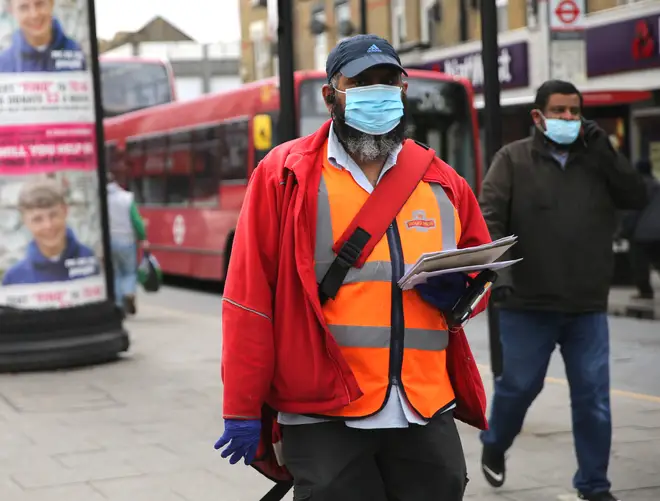
Tom Swarbrick 4pm - 6pm
5 June 2020, 06:00

The human rights watchdog will mount a statutory inquiry into “long-standing, structural race inequality” across the country in the wake of the coronavirus crisis.
The Equality and Human Rights Commission (EHRC) said it planned to carry out an in-depth review and develop evidence-based recommendations for urgent action to tackle racial inequalities which had been brought to light by the coronavirus crisis.
“We have a once-in-a-generation opportunity to tackle long-standing entrenched racial inequalities,” said David Isaac, the chairman of the EHRC. “We intend to use our statutory powers to address the loss of lives and livelihoods of people from different ethnic minorities. Only by taking focused action to tackle race inequality across Britain will we become a fair country.”
The move comes as a wave of protests sweep the globe with demonstrations across the UK highlighting the anger felt over the treatment of black, Asian and minority ethnic (BAME) people.
Provoked by the death of George Floyd in the US at the hands of police, protesters have started to highlight discrimination more widely.
Listen & subscribe: Global Player | Apple Podcasts | Google Podcasts | Spotify
Earlier this week a Government-commissioned Public Health England (PHE) report found that people of Bangladeshi background in England were twice as likely as white Britons to die if they contracted Covid-19, and other BAME groups faced an increased risk of up to 50 per cent.
The PHE review confirmed that people from black and Asian ethnic groups are twice as likely to die from Covid-19 than those from a white British background. It also said those living in deprived areas have higher diagnosis and death rates.

Govt reviewing why Covid-19 disproportionally affects BAME groups
Those of Chinese, Indian, Pakistani, Other Asian, Caribbean and Other Black ethnicity have between a 10 per cent and 50 per cent higher risk of death when compared to white British people.
Welcoming the move, Labour’s Marsha de Cordova said: “The coronavirus crisis has shone a light on these inequalities, but the government has consistently failed to take action to save BAME people’s lives during this pandemic.
“Now is the time to take steps to tackle systemic racism, discrimination and injustice in Britain. The government must take action based on the findings and recommendations of the EHRC’s inquiry.”

Dr Bharat Pankhania on BAME people and Covid
EHRC chairman David Isaac said: "Only by taking focused action to tackle race inequality across Britain will we become a fair country in which every individual can reach their full potential.
"This inquiry is part of our long-term strategic approach to tackle the structural inequalities that the coronavirus pandemic has laid bare.
"This is an important step towards ensuring that the deep-rooted inequality faced by ethnic minorities is meaningfully addressed as we rebuild."
The EHRC said the proposals for its inquiry will be discussed with race equality leaders before setting out the terms of reference in the coming weeks.
The inquiry will have the power to compel evidence from governmental departments and other organisations as it seeks to produce evidence-based recommendations to deliver progress.
It comes after PHE faced criticism that its report did not go far enough in explaining the reasons why BAME people are worse affected by the virus.
There has been concern at figures suggesting BAME people were nearly 50% more likely than white people to be arrested in London under the coronavirus laws.
Equalities Minister Kemi Badenoch is now to lead a further review, working with the Government's race disparity unit, to take forward PHE's findings.
"This Government is rightly taking seriously the initial findings from the PHE report," she said.
"However, it is also clear that much more needs to be done to understand the key drivers of the disparities identified and the relationships between the different risk factors.
"That is why I am now taking this work forward, which will enable us to make a real difference to people's lives and protect our communities from the impact of the coronavirus."